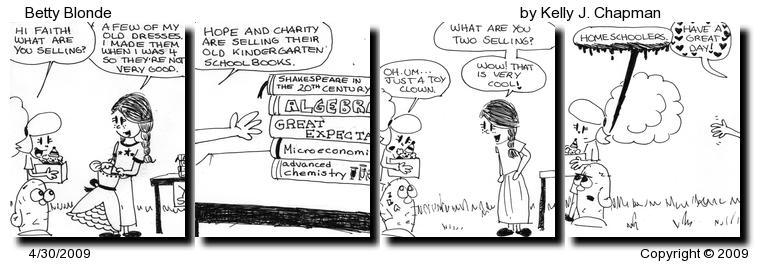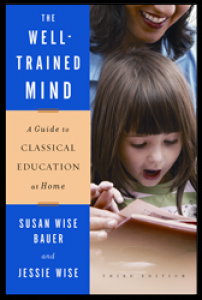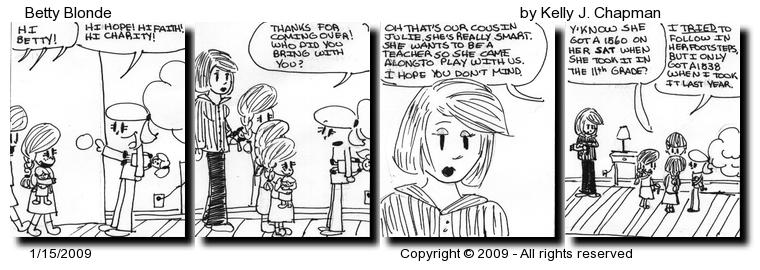This post is part of a narrative history of our homeschool. It is about why we chose to homeschool, what we did and how we did it. It is about our failures and frustrations as well as our successes. The plan is to make an honest accounting of it all for the benefit of ourselves and others. This is a work in progress which was started in late October 2014 after the kids had already skipped most or all of high school, Christian had earned a Bachelor’s degree in Mathematics (Summa Cum Laude), Kelly had earned a Bachelors degree in Statistics (Magna Cum Laude) and they were ensconced in funded PhD programs on the West Coast. I add to the narrative as I have time.
I talked to the four or five people I knew who homeschooled and checked out some books from the library to kick-start our homeschool program. The Well-Trained Mind: A Guide to Classical Education at Home by Susan Wise Bauer and Jesse Wise was all the rage at the time. I bought a copy of the book and really liked what I read. We had some very close friends down in San Diego with three kids about the same age as ours who were going through the same process. With not a lot of additional information, I bought into the very strong case made in the book for Classical Education.
The three stages of Classical Education, Grammar, Logic and Rhetoric resonated with us. The kids were already in the Grammar stage that features rote memorization of facts and rules (for arithmetic, grammar, spelling, etc.). The process, at least for our kids, was a truly enjoyable one that gave them the building blocks for future learning. They loved to memorize stuff and learn rules and facts, but they especially enjoyed it because we did it with them and lots of others (aunts, uncles, grandparents, neighbors, friends) loved to listen to them recite what they learned or hear them read a passage from a book.
The Well-Trained Mind calls for the parent to develop a program that follows a very thoughtful set of educational goals and material to be covered to meet those goals. So I developed a first grade overview/plan to cover those things called for in the book. We traipsed down to the Christian bookstore where we found Christian’s Explode the Code books that had a large homeschool section and bought the materials and books we need to implement our plan.
We still love and believe in Classical Education, but I should say a few words about how it is practiced in much of the homeschool community and many Christian Classical Education schools. We believed and vigorously practice the ideas and methods called for in the grammar and logic stages, but have found that the outcome of many Classical Education rhetoric stage programs is the production of little lawyers focused more on winning arguments than contributing to society. I have written about it a couple times on this blog here and here. Luke Holzmann’s father (Luke is our friend from the Sonlight blog) wrote about this in an amazingly insightful post here. Actually, I found Luke’s Father’s post from comments made by Luke by in May of 2009 titled “Say It to My Face”, but the link was broken. Maybe he can help us with that.
We eventually went away from the methods described in The Well-Trained Mind to something we believe was much better both in terms of our kids education, but also in terms of our own sanity. Of course, I will describe those new methods in later posts in this series. Nevertheless, the things we learned from The Well-Trained Mind served us well during the year we used it and we have no regrets in that regard. I will describe our implementation of that system in the next post.
Betty Blonde #206 – 04/30/2009

Click here or on the image to see full size strip.




